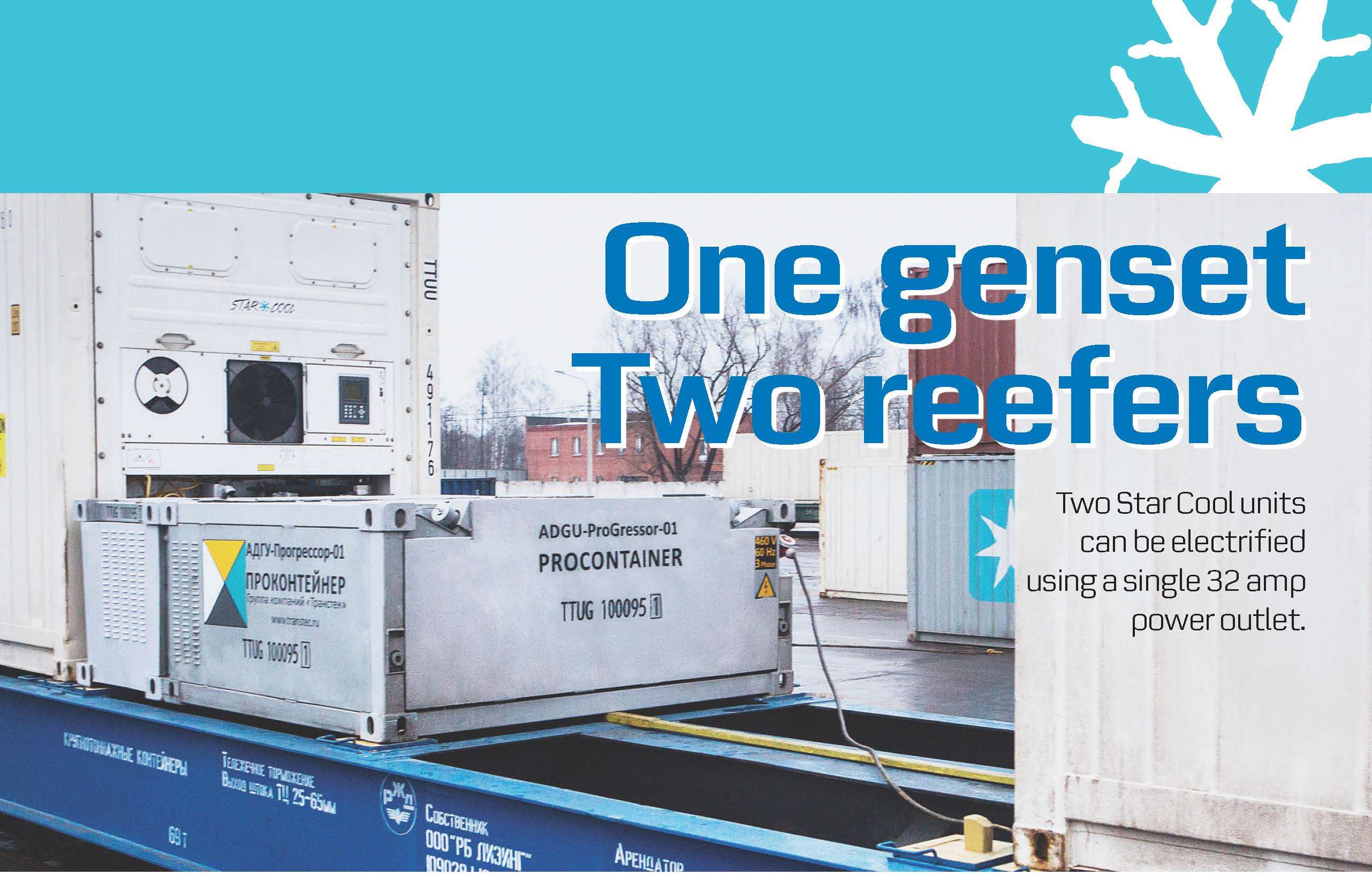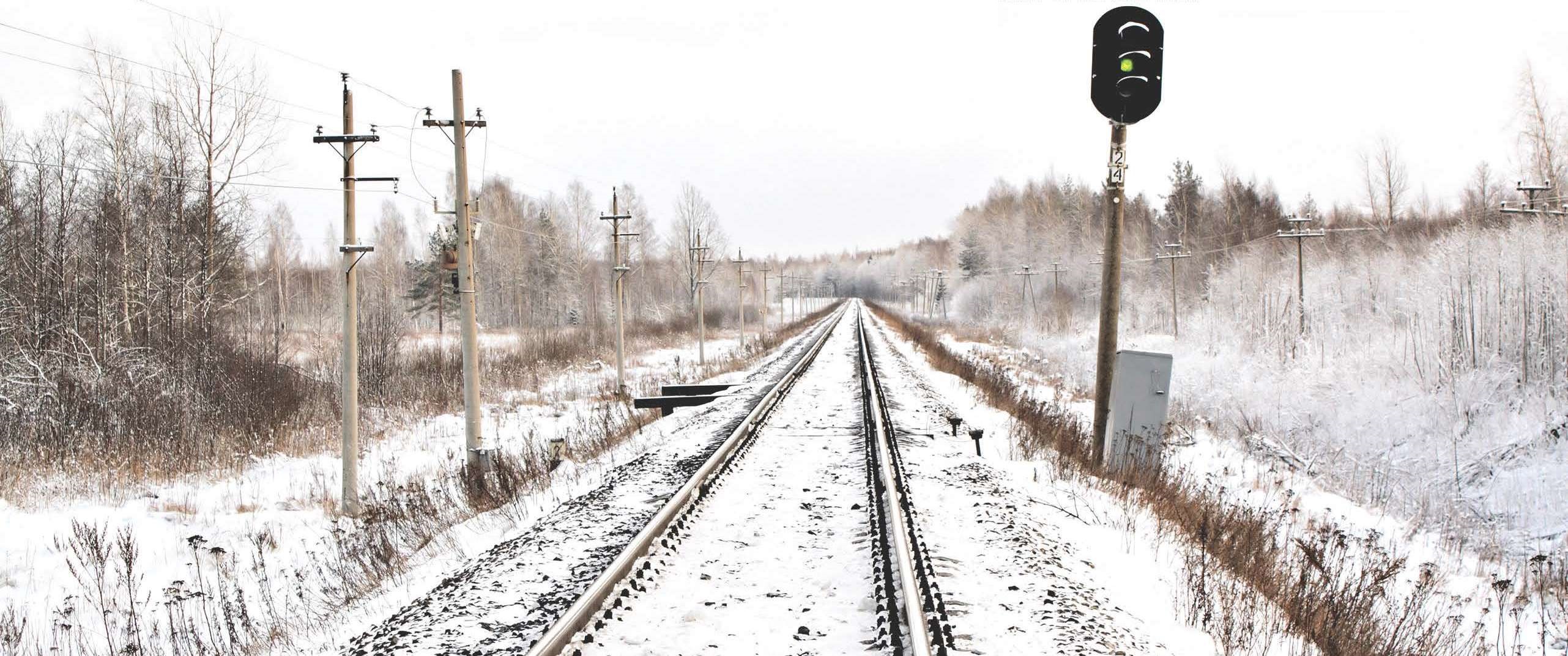
Russia covers a vast land mass. With remote regions and extreme weather conditions, railways are sometimes the only way to transport goods in the winter. This creates an ongoing need to deliver goods in reefers by railways to smaller cities throughout Russia and the CIS countries.
Dmitry Kelarev from Transtec Ltd. explains: "Traditional clipon gensets are not a suitable solution because of the climate conditions and vast distances in Russia. For example, a fuel tank on a clip-on genset is only sufficient for six days of non-stop working, whereas the distance between, for example, Moscow and Berkakit in South Yakutia is 7,500 km: a journey that takes 20 days, even at a high speed."
To meet this need, a new special genset has been developed by the company PROCONTAINER, a member of the TRANSTEC Group. Named ADGU-ProGressor-01 (ProGressor), the new genset meets the requirements of all-year-round and extra-long-distance railway transport in Russia and the CIS countries.
ProGressor has been approved by the Russian Railways (RZD) and is already being used for transportation of sensitive goods in Russia. It features a large fuel tank with a capacity of 2,000 litres. This allows it to work for 40 days non-stop and has enabled the new genset to prove its high reliability on the Moscow-Vladivostok-Moscow run without any additional stops in between.
From the outset of the project, the ProGressor development team has been using the Star Cool reefer unit because it is designed never to exceed 16 amp current draw. That means that Star Cool is the only unit on the market able to operate 2 units on a single 32 amp reefer power outlet. Thanks to the super-efficient Star Cool unit, the ProGressor is able to electrify two reefer containers at once without any additional auxiliary generator.
"Thanks to the collaboration between the ProGressor genset and the Star Cool unit, it is now even possible to deliver a single reefer container loaded with the most sensitive cargo to the smallest Russian railway station while still making a profit", Dmitry Kelarev concludes.


